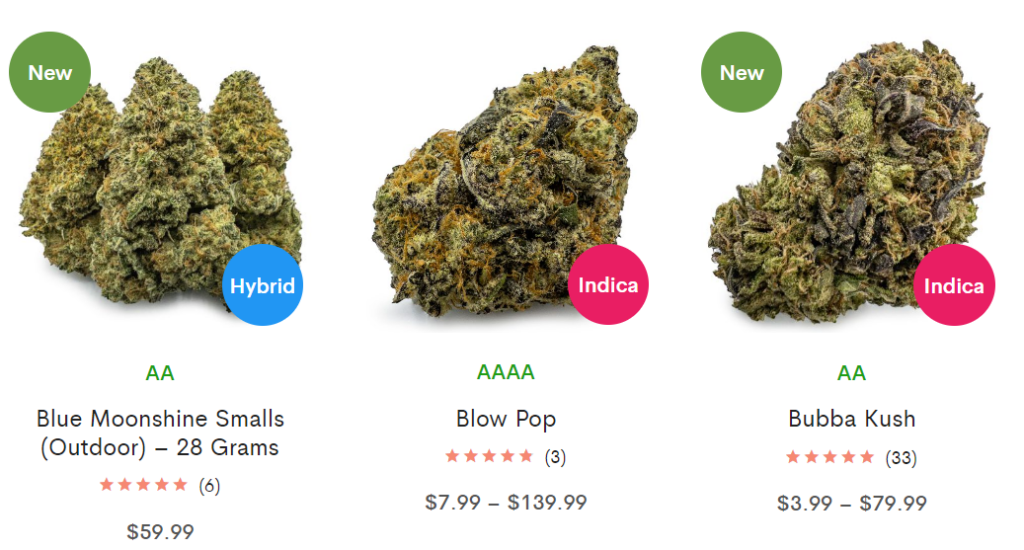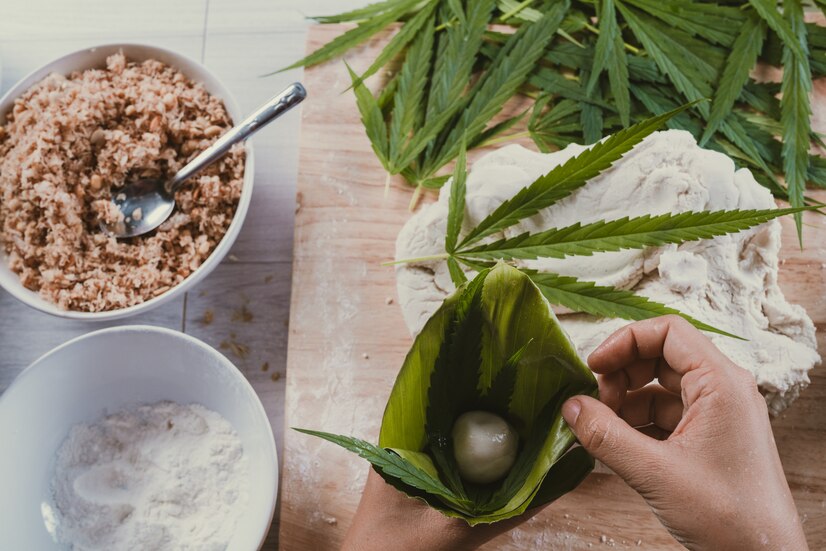Anxiety is a prevalent condition that affects millions of individuals worldwide, prompting many to seek relief through various means, including cannabis-derived products like CBD and marijuana. In this blog post, we’ll explore the differences between CBD and marijuana for managing anxiety and help you determine which option might be better suited to your needs, whether you’re considering ordering weed online Canada or exploring CBD products.
Introduction
Anxiety disorders can significantly impact one’s quality of life, leading to feelings of apprehension, unease, and worry. While traditional treatments such as therapy and medication are commonly prescribed, some individuals turn to alternative remedies like CBD and marijuana for relief. Understanding the distinctions between these two options is crucial for making informed decisions about anxiety management.

CBD: A Non-Psychoactive Solution
Cannabidiol (CBD) is a compound found in cannabis plants, known for its therapeutic properties without inducing the psychoactive effects commonly associated with marijuana. CBD interacts with the body’s endocannabinoid system, which plays a role in regulating various functions, including mood, stress response, and sleep. Research suggests that CBD may have anxiolytic (anxiety-reducing) effects, making it a promising option for individuals seeking natural remedies for anxiety.
Studies have shown that CBD may modulate the body’s stress response by interacting with serotonin receptors in the brain, which are involved in mood regulation. Additionally, CBD has been found to influence the activity of the amygdala, a region of the brain responsible for processing emotions such as fear and anxiety.
Marijuana: Exploring the Potential Benefits and Risks
Marijuana, also known as cannabis, contains varying levels of CBD and tetrahydrocannabinol (THC), the psychoactive component responsible for the “high” associated with cannabis consumption. While some individuals find relief from anxiety symptoms with marijuana use, it’s essential to consider the potential risks, particularly concerning THC content and its effects on cognitive function and mental health. Additionally, marijuana’s legality and accessibility vary depending on regional regulations.
The relationship between marijuana and anxiety is complex and can vary depending on factors such as individual differences in tolerance, dosage, and strain. While some users report experiencing temporary relief from anxiety symptoms after consuming marijuana, others may find that it exacerbates their symptoms or induces feelings of paranoia and unease, especially with high-THC strains.
CBD vs. Marijuana: Factors to Consider
When deciding between CBD and marijuana for anxiety management, several factors come into play. Firstly, consider your individual preferences and comfort level with cannabis products, including your tolerance for psychoactive effects. Additionally, assess the severity of your anxiety symptoms and consult with a healthcare professional to determine the most appropriate course of action. Legal considerations, product availability, and potential side effects should also factor into your decision-making process.
It’s essential to recognize that CBD and marijuana affect each individual differently, and what works for one person may not be effective or suitable for another. Some individuals may prefer the non-intoxicating nature of CBD, while others may find relief from specific symptoms with marijuana-derived products. Experimentation and self-awareness are key to finding the right solution for managing anxiety effectively.

Navigating the Online Marketplace
For individuals considering CBD or marijuana for anxiety relief, online dispensaries offer a convenient and discreet way to access a wide range of products. Whether you’re looking to buy weed online or order CBD products in Canada, reputable online dispensaries provide a curated selection of high-quality options to suit your needs. Prioritize purchasing from licensed producers and retailers to ensure product safety and compliance with regulatory standards.
Online dispensaries often offer detailed product descriptions, customer reviews, and educational resources to help consumers make informed choices about their purchases. Whether you’re seeking CBD oils, edibles, or marijuana flower, online platforms provide a wealth of information to guide your decision-making process and enhance your shopping experience.
Seeking Professional Guidance
While CBD and marijuana may offer potential benefits for anxiety management, it’s essential to approach their use with caution and seek guidance from qualified healthcare professionals. Consulting with a healthcare provider can help you develop a personalized treatment plan tailored to your specific needs and circumstances. Additionally, healthcare professionals can provide valuable insights into potential interactions with existing medications and help mitigate any associated risks.
A healthcare provider can assess your overall health status, medical history, and treatment goals to determine the most appropriate approach for managing anxiety. They can also offer guidance on dosage, administration methods, and potential side effects associated with CBD and marijuana use. By collaborating with a healthcare professional, you can make informed decisions about your mental health and well-being while minimizing potential risks.
Conclusion
In the debate between CBD vs. marijuana for anxiety, there is no one-size-fits-all solution. Each option has its unique characteristics, benefits, and considerations that individuals must weigh carefully. By staying informed, seeking professional guidance, and prioritizing safety, you can make empowered decisions about your anxiety management journey and explore the therapeutic potential of cannabis-derived products responsibly.


